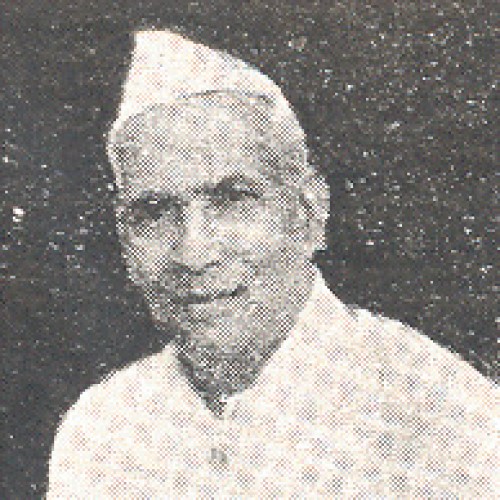Early Life
Algu Rai Shastri was born in a village in Mau district in present day Uttar Pradesh on 29 January 1900. After completing his schooling in the Mission School in Varanasi, he graduated from Kashi Vidyapith University.
Role in India’s Independence Movement
Even before his graduation, Shastri participated in the Non-Cooperation Movement in 1920, for which he went to jail.
Shastri had an active political career, He served as the Secretary of the Meerut District Congress Committee (1928-1930), Secretary of the Delhi Provincial Congress Committee (1930-1933) and Member of the Legislative Assembly of United Provinces (1937-1952). He remained a member of the All-India Congress Committee since 1928.
Shastri was also a devoted member of the Arya Samaj. He made an effort to combine socialist principles with the Arya Samaj creed. He was one of the key members of the Samaj in Meerut district in particular, and western UP generally. As time went by, his views began to shift from Gandhian socialism towards militant Hindu assertion.
Contribution to Constitution Making
He was elected to the Constituent Assembly in 1946 from the United Provinces. He urged the need to adopt Hindi as a national language and adopt the Constitution of India in Hindi. He also wanted amendments to the Draft Constitution to be tabled in Hindi in the Assembly.
Shastri denounced the reliance on the Government of India Act 1935, stating: “It is, therefore, not proper for us to follow the Government of India Act, 1935, or take it as a Bible. But we find today that it is now actually being followed as a Bible.”
He spoke on the emergency powers of the President of India and Governors, delimitation of constituencies, and restrictions on fundamental rights.
Later Contributions
Shashtri played an active political, legislative and administrative role in independent India. He was elected to the first Lok Sabha in 1952. Shastri was on the Rules Committee of the Lok Sabha, Executive and Finance Committees and Planning Advisory Committee. He served as the President of the Uttar Pradesh Congress Committee in 1951.
He was a Member of Indian Council of Agricultural Research.
Shastri passed away on 12 February 1967.
- Addressing the Constituent Assembly in Hindi, Shastri stated that promises of “social and economic equality to all visualises a purely democratic State with the people’s Government.” He emphasised that an ideal state should not discriminate between the ruler and the ruled.
- Supporting a clause proposed by Sardar Vallabhbhai Patel against recognition of forced religious conversion, Shastri stated that forced conversion without informed consent is improper.
- He strongly advocated for restrictions on fundamental rights. He said freedom must be accompanied by responsibility. Since restrictions may imposed by representatives of the people, Shastri believed that reasonable restrictions will be imposed.
- Shastri discussed the importance of the right to vote to citizenship and therefore urged for discussion on delimitation of constituencies.
- Departing from the Government of India Act, 1935, he emphasised on the need to provide governors of various states emergency powers similar to the President of India.
- Algu Rai Shastri: The socialist who vociferously denounced English as a foreign language (The Print, 2018)
- Hindu Nationalism and the Language of Politics in Late Colonial India, by William Gould (Cambridge University Press, 2004)

